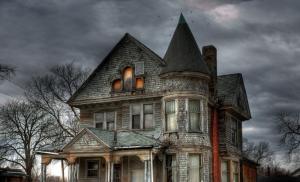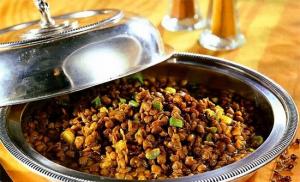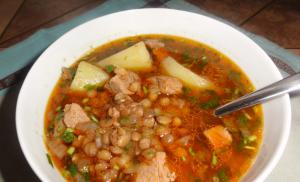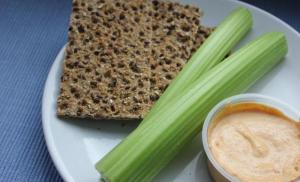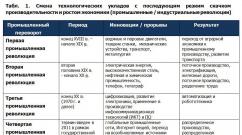Pedagogical Institute of Primary Education. School teacher
Direction of preparation: Teacher Education
Profiles: Primary education. Preschool education
GENERAL INFORMATION
Faculty: Primary school teacher training
Direction of training: Teacher Education
Training period: 5 years
Form of study: full-time and part-time
Qualification: bachelor
ABOUT THE PROGRAM
At the Faculty of Teacher Training primary classes FSBEI HPE "ChSPU" prepares bachelors of pedagogical education - specialists with higher education, ready to work in institutions of preschool and primary general education - for the upbringing, training and development of children of preschool and primary school age. Due to the fact that in the schools of the city and region there is a huge shortage of teachers of preschool educational institutions and primary school teachers, students who received education in the profile “Primary Education. Preschool education” will be in demand in the labor market for a long time, because in Russia there is an increase in the birth rate of children.
It is difficult to overestimate the importance of the educator and first teacher in the life of every child. It is these specialists who form children’s first ideas about the world, its structure and relationships between people; the first teacher also reveals the first secrets of the scientific foundations of the disciplines being studied, and develops the ability to learn. Become teacher of a preschool educational institution And primary school teacher - it means being prepared to answer the thousands of “whys” their students will ask every day. And, of course, the uniqueness of the combinations of these two profiles allows a specialist to more effectively solve the problems of continuity between teaching and raising children at these two levels.
Today, higher preschool and primary education is in demand in both traditional and innovative educational institutions, and, of course, having received it, you will definitely make the right choice in favor of your future family.
We, the teachers of the faculty, always say quite sincerely: “We are proud of our graduates!” This successful people, specialists in demand in all areas of our lives. Our graduates work in higher education educational institutions(more than 10 people work at our university), in educational institutions of the city, region, Russia, near and far abroad, on television and radio, in the system of additional education. Faculty students are diploma winners and prize-winners of competitions at various levels, volunteers at the Sochi Olympics. Student life is full not only of classroom studies and the study of theoretical cycles of disciplines, but also rich in practical activities in schools in the city and region, summer health camps, in particular in the All-Russian Children's Center "Orlyonok" on the Black Sea.
Think, what if this is your profession?!
Curriculum of the educational program for the profiles “Primary Education. Preschool education" includes the study of such disciplines as:
History of Russian literature;
Theory of literature and practice of reading activity;
Methods of teaching Russian language and literature;
Mathematics;
Methods of primary mathematical education;
Theory and methodology of music education;
Methods of teaching fine arts;
Methods of teaching the subject “Technology”;
Methods of teaching computer literacy;
A wide range of courses for students to choose from.
Requirements for the applicant's level of education : secondary education, secondary vocational education, primary professional education, higher professional education.
Form and list of entrance tests
Unified State Exam: Russian language, mathematics, social studies.
Employment
Bachelor's degree graduates in the field of "Pedagogical Education", profiles "Primary Education. Preschool education" can work as primary school teachers in general education institutions and educators in preschool educational institutions. After completing a bachelor's degree, graduates can continue their education Vmaster's programsfaculty:
ü direction"Teacher Education",master's programs:
§ Elementary education,
§ Computer Science in Primary Education
§ Health and life safety management in education
ü direction"Psychological and pedagogical education"master's programs:
§ Psychology and pedagogy of primary education;
§ Psychological and pedagogical support for family education
The Faculty of Primary School Teacher Training has three departments, which operate postgraduate studies In Russian; comparative historical, typological and comparative linguistics; in general pedagogy; theory and methodology of teaching and upbringing (Russian language, level of primary education); theory and methodology of vocational education.
All teachers of the faculty have degrees of candidates or doctors of science.
| Pedagogy from Greek literally means “child-rearing, child-rearing” |
|
Faculty of Primary Schools, Moscow State Pedagogical University
| Faculty of Primary Schools | |
|---|---|
| Moscow Pedagogical State University | |
| English name | The Faculty of primary education of Moscow State Pedagogical University |
| Year of foundation | 1921 |
| Dean | L.P. Kovrigina |
| Location | 119571, Moscow, Vernadskogo Avenue, 88 |
| Official website |
http://fnk.mpgu.edu/ |
| [email protected] | |
General information
Faculty of Primary Schools (FNK) - one of 18 educational faculties of Moscow Pedagogical State University
The faculty began its work back in 1921 as part of the pedagogical faculty of the 2nd Moscow State University. It was this faculty that was the first in the world to begin training teachers of the first stage of education - primary school teachers.
In 1934, the school department became the pedagogical faculty of Moscow State Pedagogical Institute, where teacher training began in 1957 primary school with higher education. In 1985, the Faculty of Primary Schools was separated from the Faculty of Education and created, which has 3 departments: full-time, part-time and correspondence education.
Since 1994, the faculty has been admitting graduates of pedagogical colleges, for whom an appropriate curriculum with a shortened training period has been developed.
Areas of training
Today, the primary school faculty trains high-level specialists in various areas of training, and since 2010, the faculty has switched to a two-level education system - bachelor's and master's degrees in the following areas of training:
Bachelor's degree
- Pedagogical education, profile Elementary education(additional set for persons with secondary vocational education)
- Primary Education and Computer Science
- Teacher education, profiles (English)
- Teacher education, profiles Primary Education and Foreign Language(French), planned since 2012
The faculty has various shapes training: full-time, part-time and part-time, external studies
Master's degree
- Teacher Education. Master Program: Preschool education
- Teacher Education. Master Program: Multicultural education
- Psychological and pedagogical education. Master Program: Psychological counseling in education
Faculty structure
The faculty has five departments:
- primary education pedagogy. The head of the department is Honorary Professor of Moscow State Pedagogical University, Doctor of Pedagogical Sciences A.E. Dmitriev;
- Russian language and methods of teaching it in primary school. The head of the department is Doctor of Pedagogical Sciences, Professor O.V. Sosnovskaya;
- natural disciplines and methods of teaching them in primary school. The head of the department is Candidate of Physical and Mathematical Sciences, Professor A.S. Dobrotvorsky;
- aesthetic and labor education of junior schoolchildren. The head of the department is Corresponding Member of the Russian Academy of Education, Doctor of Pedagogical Sciences, Professor A.N. Dzhurinsky;
- psychology of junior schoolchildren. Head of the department - academician of the Russian Academy of Education, doctor psychological sciences, professor, V.D. Shadrikov. The department has a laboratory for “Psychology of Abilities”.
The faculty employs highly qualified teachers who have a good knowledge of primary school, psychological, pedagogical and general education sciences: Honored Scientist, Corresponding Member of the Russian Academy of Education, Professor M.R. Lvov, Professors S.P. Baranov, L.P. Katlinskaya, D.I. Latyshina, RAO Academician V.D. Shadrikov, RAO Corresponding Member A.N. Dzhurinsky, etc.
The faculty has postgraduate and doctoral studies.
Wikimedia Foundation.
2010.
See what “Faculty of Primary Schools of Moscow State Pedagogical University” is in other dictionaries:
- ... Wikipedia
Faculty of Slavic and Western European Philology Moscow State Pedagogical University ... Wikipedia
, leading to a conscious choice and mastery of professional educational programs. The daily activities of a teacher consist of planning educational material in a specific subject or several subjects, tracking the implementation of the curriculum in these subjects, selecting and using the most effective methods
and teaching aids, monitoring progress and compliance with academic discipline.
Pedagogy as a field of higher education is very broad; in universities it includes several dozen specialties that can be combined into several groups. According to the levels of training, the specialties of pedagogical universities are grouped into the section of preschool pedagogy and pedagogy of primary education. Corrective pedagogy unites a group of specialties dedicated to working with children with mental and intellectual disabilities physical development. At the intersection of pedagogy and related fields of knowledge, specialties arose: “Pedagogy and psychology”, “ Social pedagogy" In the field of pedagogy, two-level education in bachelor’s and master’s degrees is also possible at Moscow universities.
Most often, as a pedagogical education in Moscow universities, applicants choose training in the following specialties: “Pedagogy and methods of preschool education” and “Pedagogy and methods of primary education.” These are two specialties in the field of pedagogy that study the patterns of education and training of children of early and primary school age. A primary school teacher will receive the most versatile training, as he teaches all subjects. These specialties in Moscow universities have many interesting specializations in art and music education, the creation of videos and multimedia teaching aids, and the basics of tutoring.
The specialty “Social Pedagogy” is very popular among applicants to pedagogical universities. The task of social pedagogy is to assist children and adults in solving problems of self-realization, the formation of a viable personality in different periods her life in society, in specific social situations. Within this specialty, Moscow universities also have interesting specializations:
- Legal protection of children
- Social educator - ombudsman (representative of someone’s interests, authorized to monitor the activities of government agencies)
- Social teacher - animator.
In pedagogical universities there are a number of specialties in the field of pedagogy that correspond to all those described above, but with an additional specialty (subject of teaching), for example, “Pedagogy and methods of primary education” with an additional specialty “Foreign language”.
What are they studying?
Russian teacher education is famous for its depth and versatility. In the professional field of the curriculum of pedagogical universities, the range of disciplines consists of three sectors: forms and teaching methods developed for each subject and child; the actual subject of teaching and the sector of pedagogy and psychology, devoted to problems of attention and behavior in the classroom. A modern teacher must have the skills to model and analyze teaching and educational situations, be capable of adaptation in various areas of professional activity, be ready to independently design and implement educational programs different levels, systematically improve their skills.
Future teachers study at Moscow universities a large number of disciplines from related fields of knowledge: law, medicine, sociology, methodology and practice of social work, conflictology, problems of intercultural communication.
Where does he work and how much does he earn?
Pedagogical education is unthinkable without practice, so future teachers begin to practice professional activity since junior years of higher education.
Preschool teachers work in state, municipal and private kindergartens of general profile and with priority areas of development (physical, intellectual, artistic, etc.), in orphanages, Child Development Centers, in medical institutions, in governing bodies of preschool education, in educational institutions. - methodological centers.
Primary education teachers work in educational institutions: schools, Centers for the Development and Creativity of Children and Adolescents, colleges, lyceums, boarding schools, colleges, and universities.
Social educators work in social services of specialized institutions (social shelters, employment centers, exchanges, etc.); in social services of individual enterprises, organizations and institutions; in departments for social protection of the population; youth public organizations; in leisure and cultural animation services (teenage clubs, cultural centers, sports organizations, parks, playgrounds).
Professional correctional pedagogical activities take place in special educational institutions created for children with developmental disabilities; in the healthcare and social protection system (clinics, hospitals, medical centers, dispensaries, sanatoriums, consultations, etc.).
A teacher's salary depends on several factors. The first factor is rank. A graduate of a pedagogical university receives 8-9 grades. After a year of teaching, the rank can be increased to 12. The maximum possible rank is 14, which corresponds to a salary of 50,000 rubles. The second factor is the number of teaching hours (lessons per year). Factor three - the presence of diplomas, awards, titles increases your salary.
The salary also depends on the amount of extracurricular workload, additional payment for class management, for combining positions. On average, teachers in public educational institutions in Moscow receive 30,000 rubles per month, in private institutions - more. Depends wage and on the subject of teaching. The highest salary for teachers foreign languages For example, a 12th grade foreign language teacher receives 21,000 rubles, and a subject teacher of the same grade receives 11,400 rubles. You can increase your income by tutoring.
Pedagogy is a very broad concept. Most of us remember the phrase “ pedagogical institute"is firmly associated with the profession of a school teacher or kindergarten teacher. Many don’t even suspect that they graduate psychologists, speech pathologists, linguists... last years Psychological and pedagogical education is becoming increasingly popular, and the prestige of social work in the field of education is increasing.
TOP 10 popular specialties:
If we go by the average passing score Unified State Examination, the most popular among applicants to pedagogical universities in 2011 were sociology, economics, foreign languages, philology and linguistics, as well as psychology. And this is not surprising. After all, a sociologist or economist can find a prestigious and high paying job not only at school. And there is nothing to say about foreign languages; serious employers will tear off a person with a deep professional knowledge of several languages. In the field of linguistics, a diploma from a pedagogical institute carries very good weight. Competition for these specialties reaches 7 people per budget place.
Professions related to the fine arts are also highly rated; the total Unified State Exam score here reaches 178. Most likely, this is due to the limited number of places for applicants, because not all teachers are engaged in training creative people. The competition here is not very big - only 3 people per place, but it should be taken into account that in addition to good grades, an applicant cannot do without artistic abilities - no one has canceled the creative competition.
But what to do if the Unified State Examination does not reach the required score, and since the 1st grade you have dreamed of becoming a teacher and are firmly convinced that teaching is your calling?
Then it’s a good idea to think about the profession of a music worker, social teacher or primary school teacher. In order to begin training in these specialties, you will need a Unified State Examination score not exceeding 110 points.
By the way, if we ignore the dry score statistics, over the last 10 years the professions of primary school teachers and preschool teachers have been steadily gaining popularity and the competition for these specialties never drops below 3 people per budget place.
Why? Firstly, if you decide to give your skills and love to the kids, you will never be left without work: the birth rate in Russia is now higher than ever, and secondly, education is very versatile - the first educator and the first teacher do not teach highly specialized subjects, but introduce our little ones to the huge and endlessly interesting world around us. It often happens that communication with employees kindergarten and primary school determines the entire future path of a little person, because, in fact, these are the first adults with whom the child communicates almost as closely as with his parents.
I would become a teacher... Where do future teachers study?
Applicants wishing to obtain higher pedagogical education in Moscow have a fairly wide choice. , which offer their training services in one way or another pedagogical specialties on a budgetary basis, contains more than 130 universities, academies and institutes. True, there are not many institutes in which professional pedagogical education is the main direction, and not one of the various specialties in any department.
According to a survey by the website QIP.ru, Moscow Pedagogical State University takes first place in the ranking by a large margin (31,248 votes). This is one of the oldest pedagogical institutes, producing teachers of various specializations for more than 130 years.
By the way, if you did not pass the Unified State Exam as well as you would like, and the points scored are not enough for admission to the chosen institute, it makes sense to familiarize yourself with the requirements of other pedagogical institutions; perhaps they do not have such strict requirements for applicants for the coveted specialty.
| Speciality | Minimum passing score for the Unified State Examination | University |
| Pedagogical education: sociology, economics, law | 224 | |
| Linguistics and/or foreign language teaching | 87-242 | |
| art, art graphics | 178 | Moscow City Pedagogical University |
| Pedagogical education: philology | 143-210 |
Moscow Pedagogical State University, Moscow City Pedagogical University |
| Psychology | 170 |
Moscow City Psychological and Pedagogical University, Moscow State Humanitarian University named after M.A. Sholokhov |
| Pedagogical education: chemistry | 167 | Moscow Pedagogical State University |
| Pedagogical education: biology, biochemistry | 105-198 |
Moscow Pedagogical State University, Moscow State Humanitarian University named after M.A. Sholokhov |
| Psychological and pedagogical education | 85-205 |
Moscow Pedagogical State University, Russian State Social University, Moscow City Psychological and Pedagogical University, |
| Teacher Education: Geography | 92-183 |
Moscow Pedagogical State University, Moscow State Humanitarian University named after M.A. Sholokhov |
| Pedagogy and methods of preschool education | 92-171 |
Moscow Pedagogical State University, Moscow City Pedagogical University |
| Teacher Education: History | 131 | Moscow Pedagogical State University |
| Defectological education | 69-145 |
Moscow Pedagogical State University, Russian State Social University |
| Pedagogical education: mathematics, computer science, information technology | 78-158 |
Moscow Pedagogical State University, Moscow City Pedagogical University, Moscow State Humanitarian University named after M.A. Sholokhova, Moscow State University of Economics, Statistics and Informatics |
| Social pedagogy | 93-106 | Moscow Humanitarian Pedagogical Institute |
| Pedagogy and methods of primary education | 93-99 |
Moscow Pedagogical State University, Moscow City Pedagogical University |
| Teacher Education: Music | 60-115 |
Moscow Pedagogical State University, Moscow City Pedagogical University |
Natalia Kogteva
